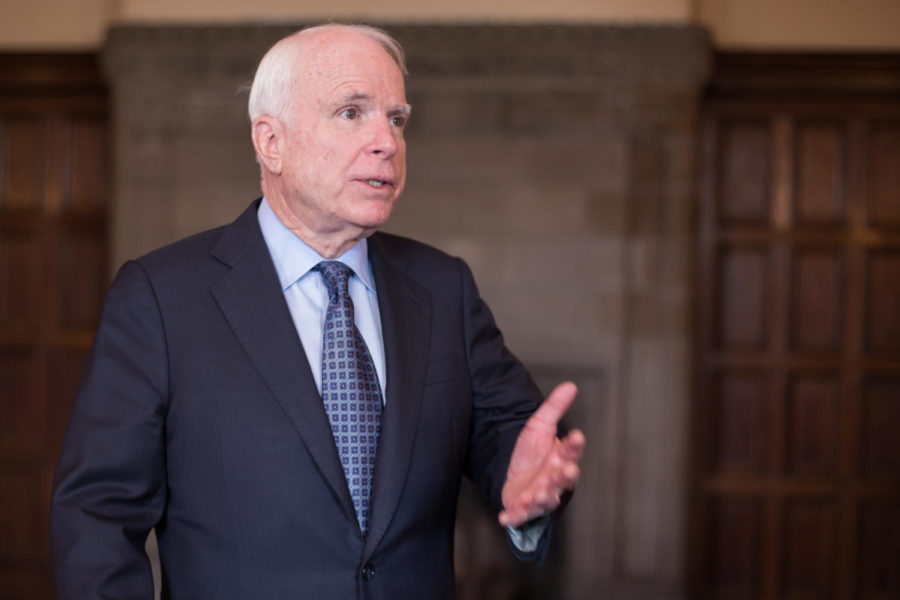Senator John McCain (R-AZ) came to the stomping grounds of his one-time presidential rival for an Institute of Politics event in Ida Noyes Hall on Monday.
After the event, McCain, who was also in town for an event at the City Club of Chicago, participated in a press conference with student journalists. He first addressed questions on how to unite the Republican Party after its apparent split over the budget battle and resulting government shutdown.
“[Republicans] have got to show the American people that we have a positive agenda,” he said. “They need to give something to Americans, like the Keystone XL pipeline, tax reform, or less government, that would give them something to be for and not against.”
McCain expressed dismay that the recent loss of faith in the government has led some to question the very form of America’s democratic system. While he does not believe that sort of change will happen in America, McCain said he is concerned about Congress’s low popularity.
“We should be alarmed when the overall approval rating of Congress is at 12 percent,” McCain said. “You can’t blame people for that.… [The shutdown] has harmed a lot of people’s lives and made a lot of people angry with government, and that part of it is understandable.”
The legislation ending the shutdown created a committee charged with reaching a compromise on next year’s budget, leading some to float the idea of a “grand bargain” on taxes and entitlement spending between the House and the Senate. When asked about the idea, McCain dismissed it, saying that there is a chance for something he called a “small bargain,” where there would be small changes in reductions and spending and possibly in the tax code.
“We’ve just failed too many times. We’ve had too many ‘gangs,’” he said about the notion of a grand bargain, referring specifically to the Gang of Eight that issued a failed budget proposal last year.
Regarding campaign finance, McCain was asked whether he thought it was possible to weaken the influence of money in politics in light of the Citizens United v. Federal Election Commission Supreme Court decision in 2010.
“The biggest mistake I think that the Supreme Court has made in my lifetime is the Citizens United decision,” he said. “It will lead to corruption and there will be scandal.… I can’t tell you how disappointed I am that [the Supreme Court] said money is now free speech. Well, if money is speech, then the wealthiest people speak the loudest.”








